A Consumer Guide to the Trailing Edge: October, 2012
Recycled Goods (#101)
by Tom Hull
This continues last month's plunge into my still vast trove of unrated records (currently around 650, of which about 200 are new jazz albums I'll get to soon enough in Jazz Prospecting). Count is down some from September (53 vs. 88), and the A-list is down even more, all of which seems perfectly reasonable to me. Will keep doing this for a while, even expecting the returns to be increasingly paltry, since I'd like to clean out that shelf unit and move the stuff into more appropriate locations. Will try to work in some new reissues where I get them -- I think the Art Pepper is the only one here, but there are a few more in the queue. And I went to Rhapsody for a couple items this month, mostly to fill out loose ends: finding a better KC compilation, checking out the Roots N' Blues discs I missed (surprised there weren't more).
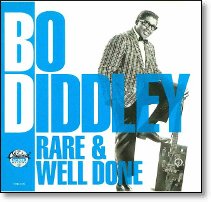 |
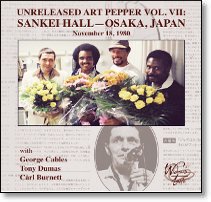 |
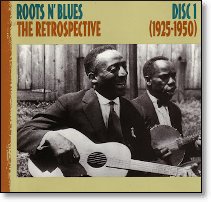 |
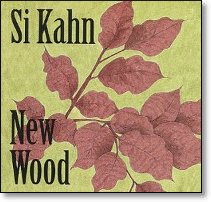 |
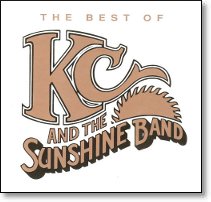 |
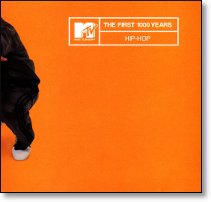 |
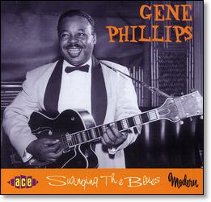 |
Bo Diddley: Rare & Well Done (1955-68 [1991], Chess): Diddley's concept was so singular that you'd figure him to have an essential single-disc compilation -- The Definitive Collection ([2007], Geffen/Chess) works for that -- so it came as a surprise that his 2-CD The Chess Box not only sustained his appeal, it broadened and deepened it. This set of alternate takes ("I'm a Man" is unnecessary; "No More Lovin'" is a surprising slice of doo-wop) and unreleased tracks doesn't come close to the surplus on The Chess Box, but manages a few finds -- noted on the fly: "She's Fine, She's Mine," "Bo Meets the Monster," "Cookie-Headed Diddley," "Please Mr. Engineer" (a reworking of the "Rock Island Line" con that morphs into "Train A-Comin'" or something else). Rhythm and jive, the jokes hit even when you see them coming, the beats keep you on your toes. A-
KC & the Sunshine Band: 25th Anniversary Edition (1973-94 [1999], Rhino, 2CD): Disco popsicles from Miami, a little thin in the vocal department (H.W. Casey) but the chunky, funky rhythm department (Casey on keybs, Richard Finch on bass) launched a fistful of shallow but memorable hits -- "Get Down Tonight," "That's the Way (I Like It)," "Shake Your Booty," "Keep It Comin' Love," "Do You Wanna Go Party." No doubt they have an A- best-of in them (several are out-of-print, notably Rhino's 1990 The Best of KC & the Sunshine Band), but stretched to 2-CD you get more historical context, like their Four Tops covers, plus the inevitable Tom Moulton remix. Having lived through that history, I appreciate the documentation, but if I knew how I should reduce this to one disc and burn it. B+(***)
Knocky Parker/Dick Wellstood/Galvanized Washboard Band: In Gay Old New Orleans (1949-68 [1989], GHB): The generally useful liner notes fail to mention the recording dates for this ramshackle collection, so I'm doing some guesswork. The first six cuts feature pianist Parker -- from Texas, mostly played ragtime and western swing -- and were released on GHB's first 10-inch LP. (The label was founded by George H. Buck in 1949, so if not then soon afterwards.) Two solo rags, a blues with drums, "Grandpa's Spells" with bass and drums, "Wolverine Blues" with oom-pah trombone, a trad jazz group cut. Wellstood is another pianist, a retro swing guy from Connecticut, but he only gets two cuts: one with washboard, the other adding horns, notably Joe Muranyi's clarinet. Wellstood recorded from 1947 to his death in 1987, so those cuts could have come any time, but my guess is early. That leaves 14 cuts from a band with washboard, banjo, tuba, trombone, cornet (Peter Ecklund), and clarinet (Tommy Sancton). The only clue here is that Sancton is described as "a nineteen year-old clarinetist from New Orleans"; he was born in 1949, so I figure 1968. They quickly make you forget wondering where the piano went, and Sancton is especially superb. B+(***)
Art Pepper: Unreleased Art Pepper Vol. VII: Sankei Hall, Osaka, Japan (1980 [2012], Widow's Taste, 2CD): I've probably lost my credibility here, given that this makes six straight Pepper authorized bootlegs I've given this same grade to -- they cheaped out on Vol. VI and only sent a sampler, so that's the hole in the list, but even with excess talk, thin sound, and a set list I've heard several times before, I can't go lower. For one thing, he's got George Cables on board -- the pianist he used on most of his studio recordings, but has been absent thus far on the boots. But also he's at a personal peak, which for him means more or less midway between jail and death. Anyone who doesn't know him should work through the essential studio discs: The Return of Art Pepper (1956-57), Meets the Rhythm Section (1957), Smack Up (1960), Living Legend (1975), Straight Life (1979), Winter Moon (1980); for live Pepper, my fave is With Duke Jordan in Copenhagen 1981, narrowly over Thursday Night at the Village Vanguard (1977) -- but note that the whole Village Vanguard stand is available in a 9-CD box (and that the complete 1977-82 Galaxy Recordings can be savored in a 16-CD box). Simplest way to describe him is that he refracted up every modernist impulse from Parker to Coltrane to Coleman, but he also maintained the sweetest alto sax tone of all (well, excepting Johnny Hodges, of course). A-
Roots N' Blues: The Retrospective 1925-1950 (1925-50 [1992], Columbia/Legacy, 4CD): "Roots N' Blues" was a logo Sony/Legacy used in the early 1990s for a series of blues reissues, nearly all of which are worth searching out (see the ACN below). No doubt there's some intersection with the series, but this is less a best-of or a sampler than a repository for all sorts of minor artists that wouldn't be slotted elsewhere (although I'd never call Charlie Poole minor, or Gid Tanner, Lucille Bogan, Charley Patton, Big Maceo Merritweather, Bill Monroe, Hank Penny, Molly O'Day, Rosetta Howard, a few others). Wobbles back and forth between country and blues, a distinction most thoughtful compilers of the period obliterate -- in his even more important 9-CD American Pop, Allen Lowe works in a lot of jazz as well -- with some scratchy Cajun and quite a bit of gospel (including a couple sermons), all making for a great treasure trove. Comes in an old-fashioned longbox, which makes the booklet easier to read (and easier to lose). A-
The Smothers Brothers: Sibling Revelry: The Best of the Smothers Brothers (1962-68 [1988], Rhino): Folk duo, Tom on guitar, Dick on bass, but they spent more time talking than singing, with Tom's malaproprisms and mental wandering often stumbling onto something mildly subversive. In the mid-1960s that made them hip and landed them on TV, and by the end of the decade made them dangerous and got them kicked off -- at one point, Tom explains, "we have freedom of speech in America, so you better say what you're supposed to say." They recorded nearly a dozen albums, nearly all live -- or at least with laugh tracks, which get to be a bit much. B+(**)
Briefly Noted
The Art of Noise: In Visible Silence (1986, China/Polydor): Post-New Wave progressives, the vocal bits broken into collages, the dance beats aiming for symphonic grandeur; they must have seemed exciting (and a bit scary) at the time, but their art moment has passed, leaving this as a slightly amusing throwback. B+(***)
Gene Autry: Blues Singer, 1929-1931: "Booger Rooger Saturday Nite" (1929-31 [1996], Columbia/Legacy): Before Hollywood, he had a pretty good Jimmie Rodgers impression, not least the yodel, with a touch of sugar in his voice and a sly grin that would take him far; note that Legacy's The Essential Gene Autry starts after this one ends, and is worse for it. B+(**) [R]
Pato Baton and the Reggae Revolution: Collections (1988-94 [1995], IRS): Reggae DJ from Birmingham, UK, cut a record with Mad Professor in 1985, his first eight years collected here; argues that all the world needs is love, or at least sinsemilla, then moves into rap on "Save Your Soul." B+(***)
Beats & Rhymes: Hip-Hop of the '90s, Part II (1990-92 [1997], Rhino): Second of three volumes, not decade wide, has trouble even getting out of 1991, and while the sources aren't all WEA, the home team predominates; nothing spectacular, but they flow fine and the beats hook, sometimes even the rhymes; useful, in that I doubt I have a third of these 15 cuts on albums, and only "Summertime" is certain to show up on other comps. B+(***)
The Best of B-Boy Records (1987-88 [2002], Landspeed, 2CD): The house that launched Boogie Down Productions rounds up a couple years' worth of singles and EP cuts, with BDP's three cuts relegated to the end; nobody else you're likely to have heard of -- Levi 167? JVC FORCE? Busy Boys? Cold Crush Brothers? those are ones that make the cover; same sound, same beats, plenty of shout outs to the South Bronx and Scott La Rock, DJ Drew's "She's a Dog" -- old style returns incognito. B+(**)
Laura Boosinger: Down the Road (1998, Laura's Label): Folk singer, AMG considers her old-timey country, probably based on the A.P. Carter covers, but she also does a lot of trad., including "Tom Dula"; third of five albums, remarkably clear voice and graceful accompaniment. B+(***)
Boyz II Men: Cooleyhighharmony (1991, Motown): New jack swing vocal group, to use the contemporary term, a big hit at the time; the hip-hop influence doesn't amount to much, and the harmonies are most satisfying on the ballads. B+(**)
Henry Butler: Blues & More, Volume I (1992, Windham Hill): Blind New Orleans pianist, b. 1949, has a dozen or so albums since 1986 but as far as I know no Volume II to this one; solo piano, a dense thicket but no sense of the stride or boogie-woogie that drove all the other important New Orleans pianists from Byrd to Booker; mostly originals, but sings a pair of covers, not his strong suit. B+(*)
Otis Clay: Soul Man: Live in Japan (1983 [1991], Blueseye Blues/Rounder): In Christgau's C+ review, he starts by pointing out that Clay is no Al Green, then adds Syl Johnson, O.V. Wright, James Carr, Howard Tate, Jimmy Lewis, Benny Latimore, McKinley Mitchell, and Z.Z. Hill to the list; that's pretty much true, but has more to do with his unoriginality -- he strictly works in the wake of those others, throwing in a little gospel for good measure -- than his pipes, his grit, his groan, which are all more than proficient, as is his band. B+(*)
Culture: Good Things (1989, RAS): The great reggae vocal trio, 12 years after Two Sevens Clash, one year after Nuff Crisis, a general decline from extraordinary to more of the same, still pretty good (although Shanachie reissued the superb 1979 Cumbolo at the same time, making the comparison more acute). B+(**)
Jesse Davis: First Insight (1998, Concord): Mainstream tenor saxophonist, from Marsalis-ville but sweeter than Branford, produced a steady flow of albums on Concord 1991-2000 but has rarely been heard from since, a shame; bright, effortless swing, knows his Kansas City as well as New Orleans, has a stellar band anchored by Kenny Washington; sings one, does a pretty good job. B+(***)
DeBarge: The Ultimate Collection (1982-87 [1997], Motown): Harmonizing family group with a funk edge, one girl and four guys, with Eldra's falsetto carrying on a solo career after five group albums (one as The DeBarges, ignored here); fans adore their 1983 In a Special Way, which contributes 4 of its 9 songs here, becoming 4 of 16; I've never quite gotten them, and this may be too much. B+(**)
Giora Feidman: The Magic of the Klezmer (1986, Delos): B. 1936 in Buenos Aires, family played klezmer; moved to Israel, called his first album Jewish Soul Music, the title appropriated for a film about him; the soul, I reckon, comes from backgrounding the rhythm, which lets the clarinet tone stand out, although it helps to have that tone. B+(**)
Bob Florence: Jewels (1979-86 [1992], Discovery): Jazz pianist, cut his first trio album in 1956 but spent most of his time arranging for big bands (Harry James, Louie Bellson, Stan Kenton, Buddy Rich) and finally cut his own big band records with LA session cats in the 1980s, the subject of this sampler. B+(**)
Don Friedman: Don Friedman at Maybeck: Maybeck Recital Hall Series Volume Thirty-Three (1993 [1994], Concord): Pianist, b. 1935, joined Dexter Gordon in 1956, cut some well regarded albums in the 1960s, continues today; solo, part of a series that sooner or later flagged damn near every important mainstream pianist in jazz. B+(*)
Joćo Gilberto: Amoroso/Brasil (1976-80 [1993], Warner Brothers): A major figure in Brazilian music from bossa nova on, one I haven't begun to sort out -- with his gentle guitar and lax vocals he is underwhelming at first, sinuous at best, with his "'S Wonderful" a fine example (despite the strings); this combines two US albums, a fairly arbitrary sample. B+(***)
Grits & Grooves! (1966-77 [1992], Instant): New Orleans funk anthology, subcontracted from Charly with next to no documentation, 20 cuts, doubles up on Aaron Neville, Lee Dorsey, The Meters, Ted Taylor, Ann Sexton, Bobby Patterson, Tommie Young; didn't know the latter four, and found a few pleasant surprises, especially Taylor's not-so-funky "How Do You Walk Away From Fear." B+(**)
Loleatta Holloway: Queen of the Night: The Ultimate Club Collection (1978-2000 [2001], The Right Stuff): Disco diva with a string of 1973-80 albums and singles, a couple hits on the dance charts; the first three cuts here are vintage dance singles, the rest look to be later remixes, mostly adding volume and clutter. C+
Si Kahn: New Wood (1974 [1994], Philo): Folk singer-songwriter, just guitar and voice; father was a rabbi, he recorded over a dozen albums, in between political work on many fronts from civil rights to Appalachian strip mining, and wrote a few books (including one subtitled, A Guide for Rabble Rousers, Activists, and Quiet Lovers of Justice; this first album is full of finely detailed songs, humane, plainly done: one laughs at Nixon, another delves behind the curtains of Old Joe's house. A-
KC & the Sunshine Band: Greatest Hits (1974-80 [1980], TK): Thought I'd check my assertion above, but the closest I found on Rhapsody was a "2012, RKO" that appears to be download only; however, it matches the original TK best-of, a 11-cut LP that closed out their prime period; everything you need, not that there isn't more. A- [R]
KC & the Sunshine Band: The Best of KC & the Sunshine Band (1974-82 [1990], Rhino): Reshuffles and adds five songs to Greatest Hits, one post-1980, two from Part 3, one from the band's The Sound of Sunshine, and, most importantly, "Do You Wanna Go Party": definitely! A- [R]
Roger Kellaway/Red Mitchell: Life's a Take (1992 [1993], Concord): Piano-bass duets, one hint being that both started out on the other's instrument, both mainstream players, the younger pianist more directly indebted to the older generation, the older bassist just a few months from his grave; something to savor. B+(***)
Talib Kweli: Quality (2002, MCA): Rapper, second solo album after breaking free from Mos Def in Black Star; mixed bag: likes having a child, dislikes the cops, likes farming out pieces to guest vocalists, who do him no favors. B
Bobby Lamb Meets Bob Florence with Trinity Big Band: Trinity Fair (1993 [1995], Hep): Lamb was an Irish trombonist, spent the better part of the 1950s in the US in the Kenton and Herman big bands, amply preparing him for this meeting, but if I read the credits correctly he's only the director here. B
Eddy Lawrence: Used Parts (1992 [1994], Snowplow): Singer-songwriter with a guitar, i.e., a folkie -- for good measure, backed up with bass, fiddle, and dobro -- writes up witty little tales and sings them at an easy loping gait; his previous one about catfish ranging (Whiskers and Scales) was more consistent; this one's typified by racoons rooting through the garbage. B+(**)
Barrington Levy: 20 Vintage Hits (1979-85 [1992], Sonic Sounds): Reggae star, never got much traction in the US, but has more than two dozen albums; no doc here, so I took the years from the first and last singles; a journeyman, sure, but not without his appeal. B+(**)
Louisiana Saturday Night (1959-93 [1993], Ace): Swamp Pop is what they call it, rock and roll with Cajun accents, or without, some bits borrowed from country or blues, anything you can dump into gumbo; still, not as frenzied as you'd hope, no one making me want to dig deeper, although I'll note that the label has options for Johnnie Allan, Tommy McClain (whose Don Gibson tune is a highlight here), and Rockin' Sidney. B+(*)
Macka B: Sign of the Times (1986, Ariwa): Christgau discovered this Brit-born Rastafari toaster in 1990 when he released three impressive albums, but missed this earlier album, his first; same themes here, defending civilization, decrying drinking (and war, and Thatcher, and Big Macs, and money-grubbing preachers, and apartheid), with all the authority of dub and Jah. B+(***)
The Magnetic Fields: Get Lost (1995, Merge): A bit more upbeat than Stephin Merritt's later work I'm familiar with, therefore a bit more engaging, but I always have a tough time with him, his deadpan suggesting that only the lyrics matter, his lyrics on the oblique side, and the effort wears one down; still, there's something to it. B+(***)
Pat Martino: Alone Together With Bobby Rose (1977-78 [2012], High Note): Pre-aneurism, previously unreleased, Rose adds a second guitar but is more rhythm accompaniment than duet partner. B+(*)
Carmen McRae/Betty Carter: The Carmen McRae-Betty Carter Duets (1987 [1996], Verve): Live at the Great American Music Hall, San Francisco, two very different singers even though their voices are closely matched, backed by a piano trio with Eric Danielson; McRae holds Carter to standards, but Carter won't leave them that way, and McRae gets a mischievous kick out of the liberty. B+(**)
MTV: The First 1000 Years: Hip-Hop (1982-98 [1999], Rhino): Part of the Y2K madness, the conceit that they can look back to sum up a millennium of anything, much less something as novel as rap; dupes six songs from Rhino's Millennium Hip-Hop Party, improving the first half and tailing off a bit on the more recent back half, ending up two cuts short (69 vs. 77 minutes), so not the ideal intro to hip-hop's first 20 years, but a serviceable one. A-
Gene Phillips: Swinging the Blues (1947-51 [2000], Ace): Jump blues shouter, played a mean electric guitar which could rival the sax he was usually paired with, but the unnamed saxman more than holds his own; has a hankering for plus-sized ladies ("Big Legs," "Big Fat Mama," "Fatso," "Short Haired Ugly Woman"), for slippin' and slidin' and jumpin' the blues, and swinging too. A-
Marvin Pontiac: The Legendary Marvin Pontiac: Greatest Hits (1999 [2000], Strange & Beautiful): You can look up Pontiac's back story at AMG -- b. 1932, Jewish mother, father from Mali, worked as a plumber's apprentice in Lubbock, robbed a bank, cut a record, abducted by aliens, etc. -- but most sources regard this as the work of Lounge Lizard John Lurie; misses any niche I can think of, including blues and show tunes, which may at least have been in his mind. B+(*)
Bud Powell: From Birdland, New York City, 1956 (1956 [1990], Jazz Anthology): Bebop pianist, had a tough life and is commonly thought to have been broken by this time, but it is possible to splendid recordings at least up to 1964 (he died in 1966); this is a live trio with Paul Chambers and Art Taylor, typical songbook, has its moments. B+(**)
Irene Reid: The Queen of the Party (1997-2003 [2012], Savant): Like all of Count Basie's singers, she swung her blues, her career split between a stint in the 1960s and a five album late comeback, which this samples and sums up -- jump blues with a feminist vengeance, most cuts aided by Charles Earland and Eric Alexander. B+(***)
Billy Lee Riley: Blue Collar Blues (1992, Hightone): Sun Records study, cut "Red Hot" in 1957 and that's probably the only thing you've heard, unless you noticed "Flying Saucers Rock 'n' Roll," earlier same year; this was his first album in 24 years; rockabilly, fast, not quite as lean as in the 1950s, but appreciate the effort. B+(**)
Paul Rishell & Annie Raines: I Want You to Know (1996, Tone-Cool): Boston-based Rishell released two blues albums before teaming up with harmonica player Raines here (she also plays piano and sings some), a combo that went on to release three more albums up to 2008; wailing blues guitar, sharp harp, a voice somewhere between the Alvin brothers, a few originals but mostly standard old blues fare. B+(*)
David Rudder: Beloved (1998, JWP): Showcased on Sire's impressive 1987 primer, This Is Soca, Rudder personified Trinidad's shift from calypso to the heavier beat of soca, but there is a corresponding loss in of lyrical wit; nonetheless, Rudder has one song about immigrating to America where he shows a firmer grasp of history than most natives can muster. B+(*)
7L & Esoteric: DC2: Bars of Death (2004, Babygrande): Boston duo, DJ (George Andrinopoulos) and MC (Seamus Ryan), respectively; records go back to 1997, this their fourth album; they are preoccupied with violence, dis Bush, drop basketballer names, get tighter and harder as the long album winds on; choice cut: "That's Right." B+(***)
Slave: Stellar Fungk: The Best of Slave (1977-85 [1994], Rhino): Funk group from Ohio, drummer-vocalist Steve Arrington the best known alumnus with a handful of albums 1982-87; don't know a technical definition of "fungk" but the word sounds a bit clogged up; the beats here fare better, but they never really breaks out the steady groove. B+(*)
The Slide Guitar: Bottles, Knives and Steel Vol. 2 (1927-34 [1993], Columbia/Legacy): Nothing much here screams out slide guitar, especially given how easy Tampa Red makes it seem -- he has 7 of 20 cuts; Curley Weaver and Sylvester Weaver 3 each -- so just another grab bag of vintage blues and hokum, including two early Helen Humes vocals. B+(**) [R]
Hal Smith/Keith Ingham/Bobby Gordon: Music From the Mauve Decades (1993, Sackville): Drums-piano-clarinet trio, respectively, playing tunes that date from 1900-1920 ("the mauve decades"), so this predates trad jazz but that doesn't prevent the trio from swinging; Ingham is a natural here, Gordon eloquent, Smith gives it a little extra kick; found this looking up Smith, and this is the only album he has on Rhapsody (of a dozen or so). B+(**) [R]
The Sound of the Delta (1963-65 [1994], Testament): Recorded by Pete Welding during the 1960s folk blues boom, when a few old guys like Mississippi Fred McDowell and Big Joe Williams were still young enough to record and got the chance as long as they sounded old as the hills; with a half-dozen others who never made a name for themselves, barely salvaged from obscurity. B+(**)
Stoney Lonesome: Lonesome Tonight (1991, Red House): Short-lived bluegrass group, cut this and a second album, Blue Heartache, the next year, with Chris Kaiser and, more importantly, Kate MacKenzie singing; fiddles around a bit, but when they latch onto heartbreak, they won't let it go. B+(**)
Caetano Veloso: Personalidade (1968-84 [1986], Verve): A major figure in Brazilian music from the late 1960s on, one I know mostly from his occasional attempts to approach the US market, which leaves him in the category of research subjects; this sampler jumps around a lot without explaining anything, so not that great of an intro, not that songs here and there aren't intriguing. B+(**)
Bob Weir: Ace (1972 [1988], Arista): Solo spinoff that doesn't fall far from the tree, seeing as how he retained his working band, aka Grateful Dead, for backup; less country harmony, more upbeat, boogie even. B+(***)
Legend: B+ records are divided into three levels, where more * is better. [R] indicates record was reviewed using a stream from Rhapsody ([X] is some other identified stream source; otherwise assume a CD). The biggest caveat there is that the packaging and documentation hasn't been inspected or considered, and documentation is especially important for reissues. But also my exposure to streamed records is briefer and more limited, so I'm more prone to snap judgments -- although that's always a risk.
For this column and the previous 100, see the archive. Total records reviewed: 3460 (3037 + 423).
Additional Consumer News
Not sure this is complete, but as far as I know these the Columbia/Legacy "Roots N' Blues" reissues (1990-97), along with my database grades:
- Gene Autry: Blues Singer, 1929-1931: "Booger Rooger Saturday Nite" (1929-31 [1996], Columbia/Legacy): B+(**)
- Big Bill Broonzy: Good Time Tonight (1930-40 [1990], Columbia/Legacy): A-
- Cajun, Vol. 1: Abbeville Breakdown 1929-1939 (1929-39 [1990], Columbia/Legacy): B+(***)
- Cajun Dance Party: Fais Do-Do (1928-34 [1994], Columbia/Legacy): B+
- Champion Jack Dupree: New Orleans Barrelhouse Boogie (1940-41 [1993], Columbia/Legacy): B+
- Blind Boy Fuller: East Coast Piedmont Style (????-?? [1991], Columbia/Legacy): B+
- Good Time Blues: Harmonica, Kazoos, Washboards and Cow-Bells (1930-41 [1991], Columbia/Legacy): A-
- Great Blues Guitarists: String Dazzlers (1924-40 [1991], Columbia/Legacy): A-
- Son House: Father of the Delta Blues: The Complete 1965 Sessions (1965 [1992], Columbia/Legacy, 2CD): A-
- Mississippi John Hurt: Avalon Blues: The Complete 1928 Okeh Recordings (1928 [1996], Columbia/Legacy): A
- Blind Willie Johnson: The Complete Blind Willie Johnson (1927-30 [1993], Columbia/Legacy, 2CD): A-
- Lonnie Johnson: Steppin' on the Blues (1925-32 [1991], Columbia/Legacy): A
- Lonnie Johnson: Stompin' at the Penny (1965 [1994], Columbia/Legacy): B
- Robert Johnson: The Complete Recordings (1936-37 [1990], Columbia/Legacy, 2CD): A-
- Juke Joint Jump: A Boogie Woogie Celebration (1936-61 [1996], Columbia/Legacy): A-
- Leadbelly: King of the 12-String Guitar (1935 [1991], Columbia/Legacy): B
- Brownie McGhee: The Complete Brownie McGhee (1940 [1994], Columbia/Legacy, 2CD): A-
- Blind Willie McTell: The Definitive Blind Willie McTell (1929-33 [1994], Columbia/Legacy, 2CD): B+
- Emmett Miller: The Minstrel Man From Georgia (1928-29 [1996], Columbia/Legacy): A
- Memphis Minnie: Hoodoo Lady (1933-1937) (1933-37 [1991], Columbia/Legacy): A-
- Raunchy Business: Hot Nuts & Lollypops (1928-39 [1991], Columbia/Legacy): B+
- The Slide Guitar: Bottles, Knives & Steel (1927-65 [1991], Columbia/Legacy): B+
- The Slide Guitar: Bottles, Knives & Steel Vol. 2 (1927-34 [1993], Columbia/Legacy): B+(**)
- Bessie Smith: The Essential Bessie Smith (1923-33 [1997], Columbia/Legacy, 2CD): A-
- Tampa Red: The Guitar Wizard (1928-34 [1994], Columbia/Legacy): A-
- Muddy Waters: Blues Sky (1976-80 [1992], Columbia/Legacy): A-
- Bukka White: The Complete Bukka White (1937-40 [1994], Columbia/Legacy): B+
- Josh White: Blues Singer 1932-1936 (1932-36 [1996], Columbia/Legacy): B+
- White Country Blues 1926-1938: A Lighter Shade of Blue (1926-38 [1993], Columbia/Legacy, 2CD): A-
Bessie Smith's The Complete Recordings were also issued under the logo, in five volumes, two CDs each (only one for Vol. 5) in a long box: major packaging overkill. They came out in 1991, on the heels of the similarly packaged 1990 Robert Johnson box set, which turned out to be a big bestseller. I never owned any of the Smith boxes, so don't ratings.
Legacy also released a set of vintage gospel compilations during this period, under a "Gospel Spirit" logo. Might as well list them here too:
- Abyssinian Baptist Gospel Choir: Shakin' the Rafters (1960 [1991], Columbia/Legacy): B+
- Thomas A. Dorsey: Precious Lord: Recordings of the Great Gospel Songs of Thomas A. Dorsey (1973 [1994], Columbia/Legacy): A
- The Golden Gate Quartet: Swing Down, Chariot ([1991], Columbia/Legacy): B+
- Mahalia Jackson: The Best of Mahalia Jackson ([1995], Columbia/Legacy): B+
- The Staple Singers: Freedom Highway (1965-67 [1991], Columbia/Legacy): A-
Like Bessie Smith, Mahalia Jackson got the 2-CD big box treatment, with two boxes of Gospels, Spirituals & Hymns, before settling on a single-CD The Best of Mahalia Jackson, the only one I've heard.
Copyright © 2012 Tom Hull.